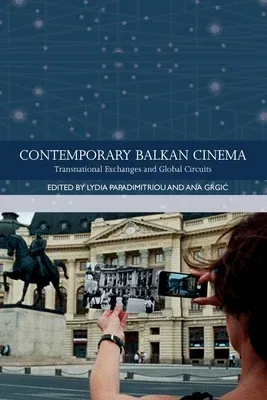Contemporary Balkan Cinema: Transnational Exchanges and Global CircuitsPaperback, 25 August 2022

Qty
1
Turbo
Ships in 2 - 3 days
Only 1 left
Free Delivery
Cash on Delivery
15 Days
Free Returns
Secure Checkout

Part of Series
Traditions in World Cinema
Print Length
328 pages
Language
English
Publisher
Edinburgh University Press
Date Published
25 Aug 2022
ISBN-10
1474458440
ISBN-13
9781474458443
Description
Product Details
Book Format:
Paperback
Country of Origin:
US
Date Published:
25 August 2022
Dimensions:
23.39 x
15.6 x
1.78 cm
ISBN-10:
1474458440
ISBN-13:
9781474458443
Language:
English
Pages:
328
Publisher:
Series:
Weight:
471.74 gm